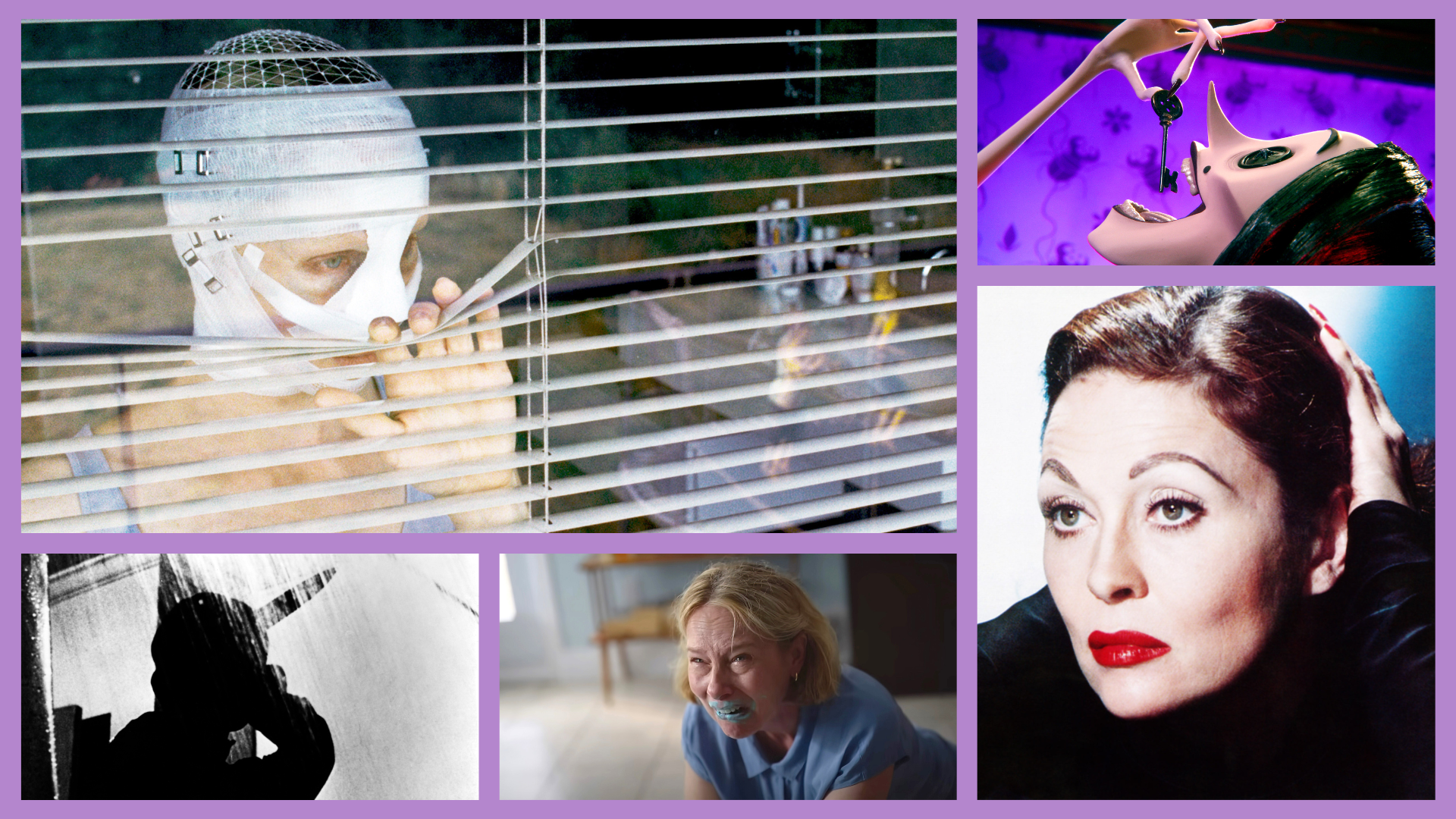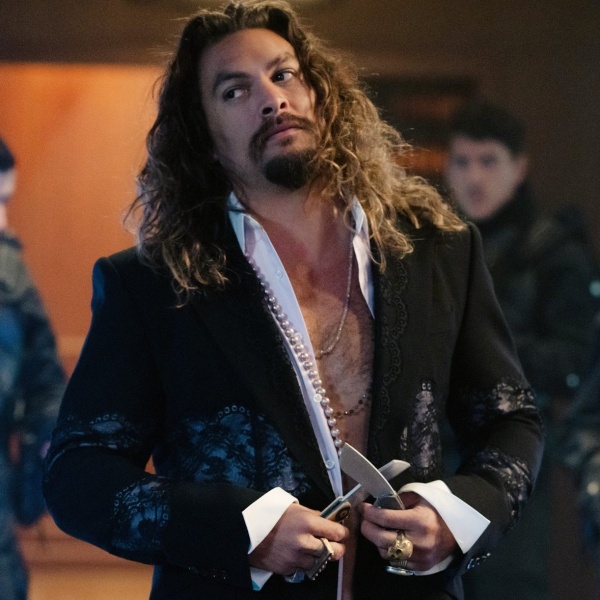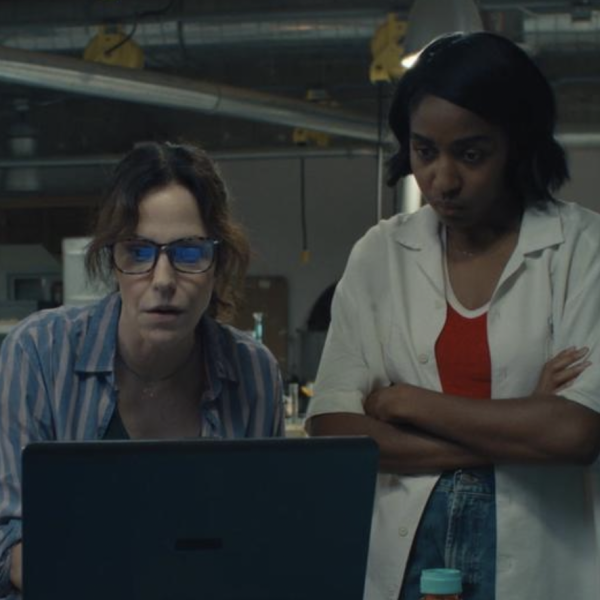Movies offer an excellent excuse to ruminate on your deepest fears, and they’re certainly cheaper than therapy. So if you’re struggling with some deep mommy issues, why not cue up a matriarchal tale of terror and sort through some of that trauma in style?
Auteurs have been hashing out their issues with their mothers on the big screen for decades, to varying degrees of success. Consider mother-centric horror as its own subgenre, and you’ll notice there’s a tendency among filmmakers to take more than one stab at the thorny subject matter. Alfred Hitchcock used the real crimes of serial killer Ed Gein and added a profoundly morbid murder of a mother at a motel to brilliantly realize Norma and Norman Bates (Anthony Perkins) for his exquisite “Psycho” in 1960, of course. But he’d whipped up something just as insidiously spectacular with Leopoldine Konstantin for his earlier “Notorious”: a 1945 spy thriller set against the wreckage of World War II and centered around the duplicitous relationship between an aristocratic mother and son (Claude Rains).
More recently, Ari Aster busted onto the indie filmmaking scene with 2018’s “Hereditary”: a head-spinning Toni Collette triumph about reckless driving, generational grief, and Pagan cults. It’s a motherly nightmare so disturbing it accidentally kicked off the so-called “elevated” horror movement, and seemed certain to go down as Aster’s definitive stance on mother-kid dynamics. That was before he delivered this spring’s bonkers Jewish epic “Beau Is Afraid” with Joaquin Phoenix and Patti LuPone performing the archetypal Oedipal struggle at its most extreme and cinematic.
From a terrifying mommy Deadite in Lee Cronin’s bloody “Evil Dead Rise,” to Pamela Voorhees’ history-making part in the original “Friday the 13th,” and, yes, even Mother Gothel being spooky, sinister, and singy in “Tangled,” the following mom movies represent some of the most effective and fun attempts to unpack fraught mother-kid relationships ever. We’ve recently added Danny and Michael Philippou’s “Talk to Me”: so the spoiler-wary may want to speed past that entry. These flicks certainly won’t make you cookies, but they’re perfect for when you just don’t want to pick up the phone.
Listed in no particular order, here are 20 of the most traumatic mom movies. You’ll notice titles that are sad but not scary (think 1998’s “Stepmom”) have been excluded — as have horror movies with maternal elements that aren’t ultimately about specific parent-child relationships (think “Mother!”)
With editorial contributions by Christian Blauvelt.
-
“Talk to Me” (2023)

Image Credit: Courtesy Everett Collection What it’s about: Australian brothers Danny and Michael Philippou make their feature directorial debut with “Talk to Me”: an A24 horror film about teenagers chasing viral trends. As seen here, that trend is using a mysterious hand statue to perform seances and become temporarily possessed by the dead. Initially a fun goof between a few friends, the possessions go haywire when Mia (Sophie Wilde) breaks the protocols governing the ritual in order to converse with her dead mother — unleashing spirits to torment her and her friends in the process.
Who it’s for: People who are a bit sick of the stereotypical A24 elevated horror films that are actually about Grief™ will likely appreciate “Talk to Me,” which doesn’t exactly depart from that formula but is willing to throw back to a nastier, simpler age of teen horror flicks.
What it says about motherhood: If you’re a mother who dies and leaves behind a grieving daughter, let her process her emotions on her own time instead of trying to talk to her from beyond the grave. —WC
-
“The Manchurian Candidate” (1962)

Image Credit: Courtesy Everett Collection What it’s about: John Frankenheimer’s classic political thriller centers on Raymond Shaw (Laurence Harvey): a Korean War vet brainwashed by communists and sent back to America to fulfill an assassination attempt. His primary tormenter in the states is his handler Eleanor (Angela Lansbury) — who just so happens to be his mother.
Who it’s for: People who remember Lansbury best as the voice of Mrs. Potts in “Beauty and the Beast” will be shocked by her turn in “The Manchurian Candidate,” playing essentially a fairytale evil stepmother come to life.
What it says about motherhood: Brainwashing is just another way of saying, “I love you.” —WC
-
“Orphan: First Kill” (2022)

Image Credit: ©Paramount/Courtesy Everett Collection What it’s about: A prequel to 2009’s “Orphan,” the “Citizen Kane” of evil little girl movies, “First Kill” sees Isabelle Fuhrman’s Leena impersonate Esther, the missing child of a mega-wealthy family. But the murderous child impersonator soon realizes she’s met her match when her new mommy, Julia Stiles’ Tricia, reveals how the original Esther disappeared.
Who it’s for: Anyone who enjoyed Fuhrman’s brilliantly creepy performance in the original “Orphan” will get a kick out of seeing her pitted against a worthy opponent with Stiles’ steely mommy.
What it says about motherhood: If your daughter gets accidentally murdered by your son, just replace her; nobody will know the difference. —WC
-
“Beau Is Afraid” (2023)

Image Credit: Courtesy Everett Collection What it’s about: A man’s Odyssean quest to visit his mother is hindered at every turn by violence, grifters, strange drugs, and the paralyzing anxiety that has consumed his entire life.
Who it’s for: Sickos who see that it’s Mother’s Day and think “yes, this is a good day to watch an Ari Aster movie.”
What it says about motherhood: Nobody’s perfect, but as long as you’re not orchestrating a 40-year ruse to turn your son into a paranoid sycophant, you’re doing alright. —CZ
-
“Mommie Dearest” (1981)

Image Credit: ©Paramount/Courtesy Everett Collection What it’s about: Christina Crawford’s memoir about her mother Joan Crawford’s abusive parenting style serves as a (very loose) foundation for this camp classic. Faye Dunaway gives a ridiculous performance as the Hollywood legend — while even Christina Crawford admits her over-the-top nefariousness bears little resemblance to her actual childhood, it’s still a great lesson in what not to do as a mother.
Who it’s for: Anyone with an interest in Hollywood trainwrecks — which applies to both Crawford herself and the movie that was ultimately made about her.
What it says about motherhood: Honestly, if this movie prompts you to learn anything about motherhood for the first time… consider the fact that parenting is not for everyone, and that’s okay! —CZ
-
“Smart House” (1999)

Image Credit: ©Disney Channel/Courtesy Everett Collection What it’s about: A seminal slice of Disney Channel cheese, “Smart House” is the only film in history where you can watch Leela from “Futurama” play an evil computer system that takes the form of a ‘50s housewife — in other words, it’s arguably the best movie ever made. Ben Cooper (Ryan Merriman) is a geeky middle schooler who’s been forced into the role of his family’s caregiver following the death of his mother. Feeling overwhelmed, he enters a contest to move into an experimental Smart House, operated by an intelligent AI named Pat (Katay Sagal).
Who it’s for: ’90s Disney Channel nostalgics and techno-conspiracists.
What it says about motherhood: Initially a warm surrogate mother figure to Ben, Pat grows increasingly controlling over him and his family, eventually taking measures to trap them in the house forever to keep them safe from outside danger. Still, you can’t really blame her for her misguided reaction; as people grow increasingly concerned about the role of AI in humanity’s future, it’s safe to say that Pat — the legend, the icon, the moment — is one algorithm we can all support. —WC
-
“Carrie” (1976)

Image Credit: Courtesy Everett Collection What it’s about: A high school girl with telekinetic powers (Sissy Spacek) is pushed to her breaking point by the abuse she faces from mean teenagers and her devoutly religious mother (Piper Laurie).
Who it’s for: Anyone who wants to feel better about their own disappointing prom.
What it says about motherhood: If your house includes a makeshift prison known as a “prayer closet,” you might want to rethink both your parenting and interior design choices. —CZ
-
“Evil Dead Rise” (2023)

Image Credit: ©Warner Bros/Courtesy Everett Collection What it’s about: Lee Cronin exhumed the Deadites in 2023 after a decade underground with “Evil Dead Rise”: a campy, Los Angeles-set gore fest centered on a single mom/tattoo artist (Alyssa Sutherland), possessed by the powers of the Necronomicon and pitted against her three children (Gabrielle Echols, Nell Fisher, Morgan Davies) and guitar technician sister (Lily Sullivan). The gut-busting antics that follow include some of the funniest dialogue about mothering in recent horror memory, but are best summed up by the littlest victim’s evergreen plea: “I want Dad to come home.”
Who it’s for: Sam Raimi fans who don’t mind turning the volume up to 11.
What it says about motherhood: No matter how much you love them? Kids will swallow your soul. —AF
-
“Notorious” (1946)

Image Credit: Courtesy Everett Collection What it’s about: “Psycho” is just the apex of Alfred Hitchcock’s career-spanning obsession with weird, wacky, and wearisome mothers (who can forget Marion Lorne as Robert Walker’s mother, and amateur painter, in “Strangers on a Train”). The matriarch who stands out above all of these, though, for sheer menacing power is Austrian actress Leopoldine Konstantin in “Notorious.” She plays the mother of Claude Rains’ Alex Sebastian, a wealthy industrialist and German emigre who happened to pack up and move his whole life to Rio de Janeiro as World War II was ending. Hmmm. Obviously he’s a Nazi. But so too is his mother: Mme Sebastian is in some ways the true power behind her whole son’s operation. She vets her son’s romance with Alicia Huberman (Ingrid Bergman), a fellow German they feel must be sympathetic to the Nazis, as her father was one. But she is not. And Mme Sebastian suspects Alicia is hiding something, even if her son can’t see it. He does want to get out from his mother’s shadow after all: his behind-closed-doors tussle with her over who gets to wear the house keys is a memorable moment of conflict, the audio turned down so it’s like you’re overhearing a faraway argument.
Who it’s for: Anyone who still depends a lot on their mom (Alex Sebastian is in his 50s!) while wanting to get out of their shadow. To poor Alicia, she’s also the ultimate mother-in-law from hell.
What it says about motherhood: When Alex finally discovers that she’s an American agent working for the CIA to bring down his whole Hitler-mad coterie, and he tells his mother about it, mama is in bed, in her nightgown. She props herself up, reaches for a cigarette, and grabs a light. It’s one of the funniest, most badass moments in the Hitchcock oeuvre, punctuated a moment later after a dissolve with her remark “We are protected by the enormity of your stupidity….” Then when he suggests just killing his wife while she’s sleeping, Mme Sebastian says “You are almost as impetuous as before your wedding. You barred me from that episode… let me arrange this one.” A mother will do almost anything to protect her child, after all. —CB
-
“Tangled” (2010)

Image Credit: ©Walt Disney Co./Courtesy Everett Collection What it’s about: There are plenty of evil mother figures in the Disney animated canon, but none are as terrifyingly realistic as Mother Gothel. Played by Broadway legend Donna Murphy, the main foe of “Tangled” presents herself to Rapunzel (Mandy Moore) as her protective mother, shielding the vulnerable young girl from the outside world. In reality, she’s the young princesses’ kidnapper, having stolen her away from her family as a baby in order to use the restorative power of her hair to remain young forever.
Who it’s for: “Tangled” is a modern classic of a Disney film, capturing the charm and comedy that defined the company’s best animated fairy tales, and it’s truly for everyone. But Gothel is a darker, more complicated take on the villainess than we’ve seen before. She hides her selfishness and exploitation of Rapunzel behind her kind front, in an unsettling accurate portrayal of emotional abuse.
What it says about motherhood: Smothering isn’t mothering. Gothel’s song “Mother Knows Best” starts as a sweet tune protecting Rapunzel, only to be reprised as a horribly demeaning tirade, and wouldn’t be so horrifying if it didn’t feel so real. —WC
-
“Mom and Dad” (2017)

Image Credit: Everett Collection / Everett Collection What it’s about: When a plague causes parents across the nation to spend 24 hours trying to murder their children, two kids pull out all the stops to survive the attacks from their own mom and dad (Selma Blair and Nicolas Cage).
Who it’s for: Billiards enthusiasts.
What it says about motherhood: Every mom needs the occasional day to herself. And if it’s at all possible, try to schedule your Me Time on the day that you’ll become obsessed with killing your kids. —CZ
-
“Psycho” (1960)

Image Credit: Courtesy Everett Collection What it’s about: It’s probably safe to spoil at this point that Norman Bates’ mother isn’t a living character in Alfred Hitchcock’s “Psycho.” But the abusive late proprietor of the Bates Motel hangs over the entire film, as the figure that has driven a strange loner named Norman (Anthony Perkins) to madness, with her treatment of the shy young man turning him into a nervous wreck manifested through a murderous split personality. The scenes with Norman dress as their mother are some of the most terrifying in film history: like the iconic shower stabbing, or the stairway assault of a private eye. Later extensions of “Psycho” — like the show “Bates Motel” — fleshed out Norma and explored her origins with decent success, but she was arguably never more terrifying than she was as just a voice in her son’s head.
Who it’s for: Lovers of classic black-and-white suspense cinema, and anyone on the road this Mother’s Day.
What it says about motherhood: Just because a mom brings her kid into this world doesn’t mean they can’t take her out of it. —WC
-
“Coraline” (2009)

Image Credit: ©Focus Features/Courtesy Everett Collection What it’s about: Henry Selick’s stop-motion adaptation of Neil Gaiman’s children’s novel feels like it was designed to make kids terrified of their parents. Laika’s first feature film follows the title character as she discovers a secret door in her house that transports her to a parallel universe, where her parents have buttons for eyes and are, at first brush, more caring and kind than her overworked real ones. But there’s a terrifying secret to this world, and The Other Mother (Teri Hatcher) is largely behind it. To reveal more would spoil the surprise, but as the film develops into a cat-and-mouse game between Coraline and her Other Mother, Selick goes all-in on turning her into the mommy of your darkest nightmares.
Who it’s for: Fans of gothic fairytales and Gaiman’s sharp incite.
What it says about motherhood: Actually communicate with your kids, because button eyes just ain’t cutting it anymore. —WC
-
“Goodnight Mommy” (2014)

Image Credit: Everett Collection / Everett Collection What it’s about: When a woman returns from a cosmetic surgery procedure with bandages covering her face, her erratic behavior leads her two young sons to suspect that their actual mother has been replaced with someone more sinister.
Who it’s for: Fans of icy European horror films and anyone who enjoys a killer twist.
What it says about motherhood: It pays to take an interest in what your kids are talking about — for your own safety, if nothing else. —CZ
-
“Black Swan” (2010)

Image Credit: ©Fox Searchlight/Courtesy Everett Collection What it’s about: A rising star in the upper echelons of New York’s ballet world (Natalie Portman) struggles to hold onto her coveted role in “Swan Lake” amid manipulation from her ambitious understudy (Mila Kunis) and overprotective mother (Barbara Hershey)
Who it’s for: Dance moms and their traumatized daughters.
What it says about motherhood: You can only shoehorn your children into your own unrealized dreams for so long before something terrible happens. —CZ
-
“Gypsy” (1962)

Image Credit: Courtesy Everett Collection What it’s about: Maybe the most famous bad mother in all of theater is Mama Rose, the terrifying matriarch determined to make her kids famous vaudeville stars. Played in the 1962 film adaptation by Rosalind Russell, she’s a commanding and overbearing presence, running both June (Ann Jillian) and Louise (Natalie Wood)’s lives with an iron fist and sucking all of the oxygen out of every room she’s in. But she receives her satisfying comeuppance when, after June runs away, Louise finds success as a striptease artist, and cuts her mother out of her life. Rose’s signature song, the emotional breakdown “Rose’s Turn,” is a masterclass in delusion and maternal rage, conveying everything about the terrible mother she is even as she tries desperately to deny it.
Who it’s for: Traumatized musical theater kids.
What it says about motherhood: There’s no business like show business, and boy will it ruin your family. Good luck having it all! —WC
-
“Barbarian” (2022)

Image Credit: ©20th Century Studios/Courtesy Everett Collection What it’s about: Horror films are full of bad mothers, but “Barbarian” is a horror film about a great mother who just didn’t get the kids she deserved. Alright not really, but it’s hard not to feel bad for the twist villain of this 2022 sleeper horror hit: a deformed woman (Matthew Patrick Davis) locked away in dank labyrinth underneath her cruel abuser’s home. Alone all her life, the mother in “Barbarian” latches onto the unfortunate fools who visit the house, like Tess (Georgina Campbell) and AJ (Justin Long), as her children — although her attempts to provide for her babies mostly results in extreme harm. You can’t blame the little ones for trying to break out, but it’s not really satisfying to see the “Barbarian” mom get her plans foiled. All she really wants is love, after all.
Who it’s for: Horror fans with strong stomachs. Possibly not the lactose intolerant.
What it says about motherhood: Fussy kids are tough, but stick it out long enough and you’ll always remember why you love them. —WC
-
“Hereditary” (2018)

Image Credit: Courtesy Everett Collection What it’s about: Toni Collette gives one of the best horror performances in recent memory as a miniature artist facing a difficult grieving process following the death of her mother. But the emotional baggage of processing a relationship with an emotionally distant parental figure quickly gives way to one of the all-time great horror twists in Ari Aster’s appalling debut feature.
Who it’s for: Anyone who has to interact with multiple generations of traumatizing figures at this weekend’s Mother’s Day festivities.
What it says about motherhood: Don’t screw it up… because otherwise this might happen. —CZ
-
“Friday the 13th” (1980)

Image Credit: ©Paramount/Courtesy Everett Collection What it’s about: Jenna Ortega gets asked one of the more vexing trick questions in horror history at the start of “Scream 6.” Who was the killer in the original “Friday the 13th”? The answer isn’t Jason, but Pamela Voorhees (Betsy Palmer): the vengeful mother of kid who died at the summer camp she comes back to terrorize in Sean S. Cunningham’s 1980 slasher classic.
Who it’s for: Only children, helicopter parents, and/or only children who became helicopter parents.
What it says about motherhood: It’s never too late to be there for your kid. —AF
-
“The Babadook” (2013)

Image Credit: Courtesy Everett Collection What it’s about: When a widow (Essie Davis) reads her young son (Noah Wiseman) a book about a top hat-clad monster named Mister Babadook, he begins to fear that the creature is real. His fears and their combined grief over the loss of the boy’s late father create oodles of tension in the house, which in turn erupt into an unforgettable meditation on anger and heartbreak.
Who it’s for: Exhausted parents, and anyone who is still bitter over their childhood fears about a monster in the closet being dismissed. (And the gay community, of course.)
What it says about motherhood: It’s a great reminder to be selective about what you read to your kids: don’t choose any story book with a protagonist you wouldn’t feel comfortable sharing your home with! —CZ






